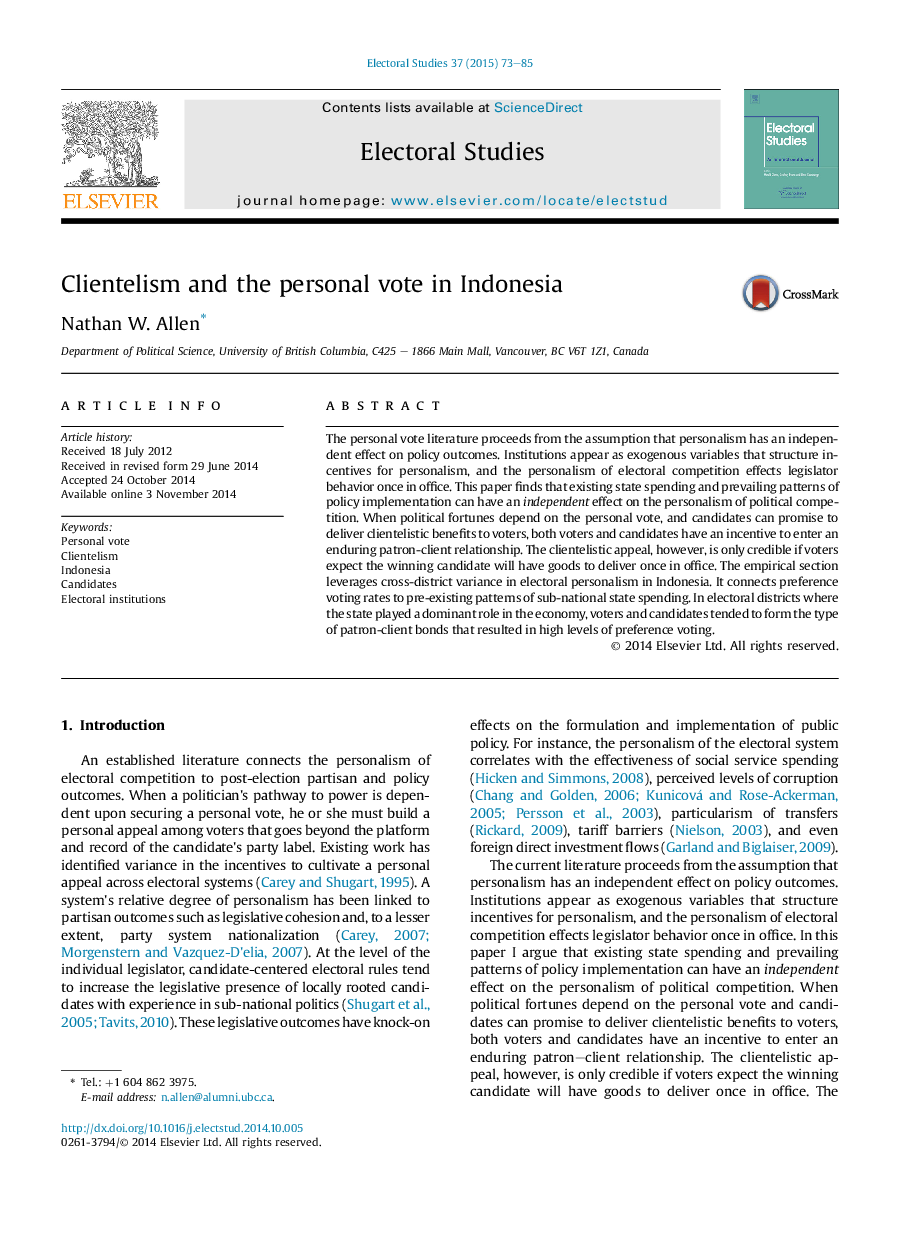| کد مقاله | کد نشریه | سال انتشار | مقاله انگلیسی | نسخه تمام متن |
|---|---|---|---|---|
| 1051819 | 1484956 | 2015 | 13 صفحه PDF | دانلود رایگان |
• The paper models preference voting rates across Indonesian electoral districts.
• Preference voting is high in electoral districts dependent on the state sector.
• The finding is consistent across all Indonesian parties.
• Preference voting is highest in districts with high resources and high corruption.
The personal vote literature proceeds from the assumption that personalism has an independent effect on policy outcomes. Institutions appear as exogenous variables that structure incentives for personalism, and the personalism of electoral competition effects legislator behavior once in office. This paper finds that existing state spending and prevailing patterns of policy implementation can have an independent effect on the personalism of political competition. When political fortunes depend on the personal vote, and candidates can promise to deliver clientelistic benefits to voters, both voters and candidates have an incentive to enter an enduring patron-client relationship. The clientelistic appeal, however, is only credible if voters expect the winning candidate will have goods to deliver once in office. The empirical section leverages cross-district variance in electoral personalism in Indonesia. It connects preference voting rates to pre-existing patterns of sub-national state spending. In electoral districts where the state played a dominant role in the economy, voters and candidates tended to form the type of patron-client bonds that resulted in high levels of preference voting.
Journal: Electoral Studies - Volume 37, March 2015, Pages 73–85
